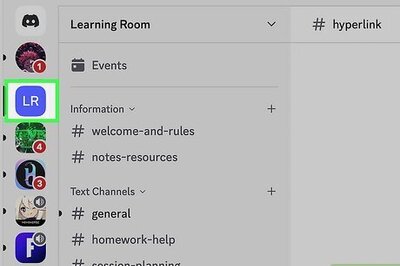
views
Are you among thousands of candidates preparing for UPSC Civil Services Exam? The UPSC CSE 2021 preliminary exam is the first step towards achieving the dream, however, it is a tough task to crack the exam. Additionally, high competition and overflow of information confuses candidates about their preparations. Here is a guide to help you be ahead of the rest and crack the UPSC prelims in the first attempt.
How to Cover the vast syllabus?
The aim should be to comprehensively cover the syllabus prescribed by the UPSC manner. No portion should be left for granted, whatever be the past trends. UPSC can tilt towards any portion from the massive syllabus and hence it’s advisable to be on the safer side. For instance, in UPSC prelims 2020, the Commission had asked more than usual questions from ancient history.
The syllabus of prelims is quite massive and scattered. It is important to consolidate the entire material. Hence, revision should be both reasonable and time-bound. A fine balance is demanded in the coverage of the syllabus and revision of the covered portion. The syllabus should be scanned properly and prioritized.
UPSC syllabus can be covered with quality without making proper notes. Notes should be made in the proper format so that it becomes easier for the aspirants to memorize and reproduce. Notes should not be too bulky and hence the purpose of notes should always be tied in mind.
The portion of the syllabus that is more data and fact-oriented must be revised multiple times before the actual exam. Such portions can be left for last time revision so as to keep it in fresh memory.
How to prepare CSAT and Current Affair
CSAT should be taken very seriously. Taking it lightly can take cost massively. People who are completely novice to CSAT should keep it at par with General Studies. But even the aspirants who are at a comparatively advanced stage should take it seriously. At least past years’ papers should not be missed.
Current affairs are the most amorphous part of Prelims, however, nonorientation preparation can destruct the entire purpose of current affairs. It is important to carve and confine the boundaries. One standard newspaper, one monthly magazine, the gist of Indian Year Book, Economic Survey, Budget, PIB, and Yojna should be the basic supply of Current affairs. Joining an exclusive current affairs course is a good idea but too much dependency can be a futile exercise.
Test your knowledge before concluding
After coverage of a substantial portion of the syllabus, a decent number of mock tests must be attempted. The number of mocks should be reasonable. Too many tests would drain your precious energy and too few numbers would leave you unprepared. Mocks should be given in exam type environment only. Joining only one standard test Series would be a wise idea. The post-test analysis is a must exercise. Just run the race to continuously improve yourself.
The past year papers should be like a radar of preparation which provides direction and orientation to your preparation. Apart from enhancing your knowledge base, past year papers help in forming your mental outlook. This increases your common sense and helps you in eliminating options.
Revision Tips
One month before prelims do cover anything new unless it’s extremely and exceptionally important. The last month should be kept exclusively for revision. Mains can be taken along with Prelims but the proportion of time should be justified.
Limit your sources and go for multiple revisions from limited and standard sources only. Too much diversity in study materials will mess up your entire preparation and will bring anxiety and stress during the last leg of preparation.
–
– The Author is- Manoj K Jha, Director, GS Score Institute.
Read all the Latest News, Breaking News and Coronavirus News here. Follow us on Facebook, Twitter and Telegram.



















Comments
0 comment